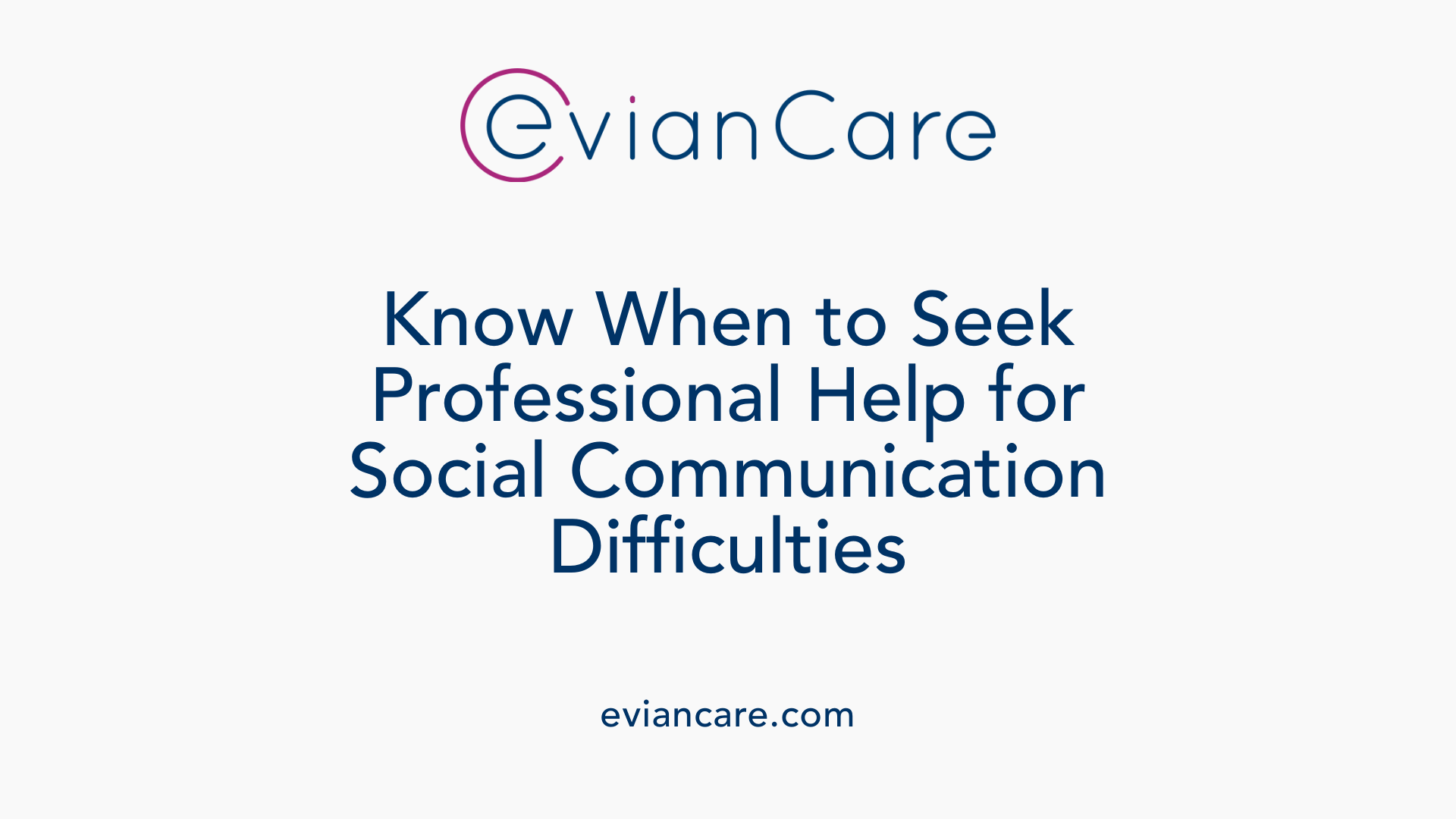
Understanding Pragmatic Language and Its Significance
Pragmatic language skills are fundamental for effective social interaction. They refer to the social use of language which encompasses understanding how to communicate appropriately across different social contexts. These skills enable individuals to participate successfully in conversations, develop relationships, and navigate everyday social situations with confidence. Developing strong pragmatic language abilities supports emotional regulation, self-advocacy, and confidence—attributes that are essential for personal growth, academic success, and professional interactions. Without mastery of these skills, individuals may face challenges in socialization, maintaining friendships, and securing employment, underscoring their vital role in overall social and emotional well-being.
Defining Pragmatic Language Skills and Their Role in Society

What are pragmatic language skills and why are they important?
Pragmatic language skills involve the social use of language, which is essential for effective communication in everyday life. These skills enable individuals to understand and use both verbal and nonverbal cues appropriately within social contexts. For instance, knowing how to greet someone, ask questions, or make requests helps facilitate smooth interactions.
Key components include turn-taking during conversations, maintaining eye contact, understanding gestures, and interpreting social cues such as facial expressions and body language. They also involve following conversational rules like staying on topic, giving others a chance to speak, and respecting personal space.
Having strong pragmatic skills is fundamental for building relationships, collaborating in group settings, and navigating different social environments. These skills contribute to an individual’s emotional regulation, self-advocacy, and confidence.
Without well-developed pragmatic language abilities, people might struggle with socialization or misinterpret social cues, leading to difficulties in friendships, workplace interactions, and community participation. Therefore, mastering these skills is vital for personal growth, social integration, and emotional well-being.
Use of language for different purposes
Pragmatic language also covers using language for various intentions such as greeting, informing, demanding, requesting, and offering. For example, a child learns to say "hello" when meeting someone or to ask for help politely.
Changing language according to the listener or situation
Adjusting language depending on who is listening—like speaking more formally with teachers or casually with friends—is another aspect. It involves understanding context and choosing appropriate words, tone, and nonverbal signals.
Following conversation rules
Effective social interaction depends on adhering to conversation rules. This includes taking turns, staying on topic, understanding and using nonverbal cues like gestures and facial expressions, and respecting personal space. Recognizing humor, irony, and sarcasm also forms part of advanced pragmatic skills.
Broader Role in Society
These skills influence academic success, professional interactions, and personal relationships. They help individuals communicate their needs, understand others’ perspectives, and resolve conflicts. Consequently, fostering pragmatic language abilities can improve overall social functioning and quality of life.
| Skill Aspect | Examples | Importance |
|---|---|---|
| Communicative Purposes | Greeting, informing, demanding, requesting | Facilitates diverse interactions |
| Context Adaptation | Changing speech in different settings | Ensures appropriate communication |
| Conversation Rules | Turn-taking, maintaining topic, nonverbal cues | Enhances social harmony |
| Interpretation Skills | Recognizing humor, sarcasm | Aids nuanced understanding |
Understanding and developing pragmatic language skills are crucial for meaningful and effective social participation, making them a cornerstone of social competence.
Understanding Pragmatic Language Disorders: Characteristics and Challenges

What are the characteristics and challenges of pragmatic language disorders?
Pragmatic language disorders involve significant difficulties in using language appropriately in social situations. Individuals affected by these disorders often struggle with understanding and interpreting social cues, including body language, facial expressions, and tone of voice.
A major characteristic is difficulty with the social use of language, which impacts activities such as greeting others, requesting, giving information, and participating in conversations. They may also have trouble with turn-taking, staying on topic, and recognizing when to speak or listen.
Additionally, those with pragmatic language issues might find it hard to understand humor, sarcasm, or abstract concepts, which are often part of everyday interactions. These challenges can lead to awkward social encounters, misunderstandings, or difficulty forming and maintaining friendships.
Children and adults with these problems may also show language delays, have trouble understanding others’ perspectives, and struggle to interpret nonverbal cues like gestures and eye contact.
The impact of pragmatic language disorders is broad. They can affect relationships, social success, academic performance, and even employment. People may appear socially awkward or inattentive, which can lead to social rejection or isolation.
Because these difficulties can resemble or coexist with conditions like Autism Spectrum Disorder or Social (Pragmatic) Communication Disorder, it’s important for professionals to conduct thorough assessments. Addressing pragmatic language challenges with targeted therapy helps improve social interactions, self-esteem, and overall quality of life.
Identifying and Diagnosing Pragmatic Language Difficulties

What are the causes and how are pragmatic language difficulties diagnosed?
Pragmatic language challenges can arise from various factors, including developmental disorders such as Social (Pragmatic) Communication Disorder (SCD). They may also be linked to brain dysfunction, which affects the brain's language centers. Additionally, these difficulties often occur alongside other conditions like autism spectrum disorder (ASD), ADHD, or general language impairments.
The exact causes of pragmatic language disorders are often not fully understood. They primarily involve difficulties in social interaction, using language appropriately across different contexts, and interpreting non-verbal cues such as gestures and facial expressions.
Diagnosing pragmatic language issues involves thorough assessments by speech-language pathologists (SLPs). These professionals observe the child's communication behaviors in natural settings, administer standardized tests like TOPL (Test of Pragmatic Language) and CCC (Child Communication Checklist), and use checklists or questionnaires completed by parents and teachers.
This comprehensive evaluation helps identify specific areas of difficulty, such as turn-taking, maintaining conversations, understanding humor or sarcasm, and adjusting language to different social situations.
To differentiate pragmatic language disorder from autism spectrum disorder, clinicians carefully examine whether there are restricted or repetitive behaviors, which are characteristic of ASD. The absence of these behaviors can indicate SCD rather than autism.
Early and accurate diagnosis allows for targeted interventions, including speech therapy techniques like social skills training, social stories, and visual supports. Consistent support from families, educators, and therapists is crucial in helping individuals develop effective social communication skills, ultimately improving their social interactions and quality of life.
Speech Therapy Approaches and Strategies for Enhancing Pragmatic Skills
What approaches and strategies are used in speech therapy to improve pragmatic skills?
Speech therapy targeting pragmatic language skills involves a blend of techniques tailored to meet individual needs. Common approaches include social skills training, role-playing, social stories, and video modeling. These methods create opportunities for children to practice social interactions in a controlled, supportive environment.
Social skills training often focuses on teaching specific skills such as greeting others, requesting, sharing information, and understanding social cues. Role-playing allows children to simulate real-life situations, helping them gain confidence and recognize appropriate responses. Social stories are visual narratives that outline social norms and expected behaviors, making complex concepts easier to understand.
Video modeling is another effective strategy where children watch videos demonstrating appropriate social behaviors. This visual input helps them internalize the skills and replicate them in their own interactions.
In addition to these approaches, therapists incorporate strategies like modeling appropriate behaviors, explicitly teaching turn-taking, interpreting nonverbal cues such as facial expressions and body language, and adjusting speech according to context.
Group therapy sessions also play a significant role, providing opportunities for peer interaction. These settings allow children to practice their social skills with others, receive feedback, and learn from peers' experiences.
Therapy plans are customized, aiming to develop practical, everyday social communication skills. The integration of these strategies supports individuals in improving their social interactions, ultimately enhancing their relationships and participation in community activities.
The Benefits of Speech Therapy in Developing Social Communication Skills
What are the benefits of speech therapy for developing pragmatic language skills?
Speech therapy plays a vital role in helping children improve their social communication abilities. Through targeted interventions, children learn how to use language appropriately in social situations. This includes key skills such as taking turns in conversations, staying on topic, and understanding nonverbal signals like gestures, facial expressions, and body language.
One major benefit is the enhancement of a child's ability to adapt their language depending on who they are talking to and the context of the situation. For example, a child might learn to speak more formally in class and more casually with friends. These skills are essential for effective communication and fostering positive relationships.
Group therapy sessions are another important aspect. They provide a realistic social environment where children can practice their skills with peers. This setting helps build confidence and independence as children navigate conversations and social cues in a safe, supportive space.
Furthermore, speech therapy helps children understand and follow social norms and rules, making it easier for them to engage successfully within their community. As children develop these pragmatic skills, they experience improvements not only in communication but also in social-emotional development.
Increased social participation is another significant benefit. Children become more confident in initiating interactions, maintaining friendships, and resolving conflicts.
Overall, speech therapy enhances understanding, participation, and emotional well-being. It empowers children to communicate effectively, develop meaningful relationships, and confidently engage in various social settings.
Recognizing When Professional Support Is Necessary

What signs indicate the need for professional intervention in pragmatic communication?
Children and adults showing persistent difficulties in social interactions may require professional support. Key signs include trouble taking turns during conversations, responding appropriately to social cues like facial expressions or body language, and maintaining a conversation on a given topic.
Individuals with pragmatic language challenges might also struggle with understanding or using figurative language, jokes, or sarcasm, which are common in social communication. Difficulties in interpreting nonverbal signals such as eye contact, gestures, or personal space, can further hinder social interactions.
Other indicators include consistent problems with initiating conversations, keeping them going, or ending them appropriately. These challenges can affect friendships, school participation, and workplace relationships.
Impact of pragmatic deficits on daily life and social participation
Pragmatic language difficulties can significantly impact a person's everyday functioning. Social participation may become limited due to misunderstandings or frustration in social settings. Children might find it hard to make friends or feel socially anxious, while adults may experience difficulties in professional environments or relationships.
These deficits can also influence academic performance, especially in activities requiring teamwork or group discussions. Without proper intervention, pragmatic skills may not develop fully, leading to ongoing social and emotional difficulties.
Early identification and support from speech-language pathologists can help individuals improve their social communication abilities, fostering better peer relationships, academic success, and overall quality of life.
| Signs of Pragmatic Communication Difficulties | Impact on Daily Life | Intervention Strategies |
|---|---|---|
| Trouble taking turns in conversation | Social isolation | Speech therapy, social skills training |
| Difficulty interpreting social cues | Academic challenges | Role playing, social stories |
| Challenges with nonverbal communication | Workplace struggles | Video modeling, peer interactions |
| Problems initiating or maintaining conversations | Emotional frustration | Visual supports, naturalistic practice |
| Limited understanding of humor or sarcasm | Relationship issues | Parent and teacher coaching |
Resources, Activities, and Support Systems for Pragmatic Language Development
What resources and activities can support the development of pragmatic language skills?
Supporting pragmatic language development involves a variety of resources and engaging activities tailored to enhance social communication skills. Social stories are a common tool used to teach children about appropriate behaviors in different social situations. These stories present scenarios and guide children on how to respond effectively, helping them internalize social norms.
Role-playing activities are also highly effective, allowing children to practice real-life interactions such as greeting peers, asking questions, or resolving conflicts in a safe environment. Social skills groups provide group settings where children can learn from peers, practice conversational turn-taking, and develop empathy. These groups foster collaborative learning and can be adapted for children with various needs.
Additional activities include emotion recognition exercises, where learners identify facial expressions and body language cues, which are crucial for understanding nonverbal communication. Perspective-taking tasks help children understand others’ viewpoints, enhancing empathy and social understanding.
Social scenario exercises present specific situations—like sharing toys or participating in classroom discussions—that encourage problem-solving and appropriate responses. Using conversation starters, such as open-ended questions or idiomatic expressions, can facilitate smoother dialogues and build confidence.
Engaging activities like puppet shows and storytelling promote expressive language and creativity. Puppet play, in particular, allows for dramatization of social situations and practicing conversation skills. Board games and collaborative projects further develop turn-taking, patience, and strategic thinking.
These resources and activities are suitable for various settings, including therapy sessions, classrooms, and home environments. They aim to improve skills such as politeness, turn management, cultural adaptability, and understanding social cues. As a result, learners can navigate social contexts more successfully, fostering better relationships and communication effectiveness across different life situations.
Social Communication Disorder (SCD): Diagnosis and Treatment
What is Social (Pragmatic) Communication Disorder and what are the treatment options?
Social (Pragmatic) Communication Disorder (SCD) is a neurodevelopmental condition marked by difficulties in using language appropriately in social situations. Individuals with SCD find it challenging to respond effectively to others, interpret nonverbal cues like gestures and facial expressions, and adjust their communication based on the social context. These challenges affect both verbal and nonverbal social interactions, including taking turns in conversations, discussing emotions, and maintaining topics.
Unlike autism spectrum disorder (ASD), SCD does not involve restricted or repetitive behaviors. Instead, the main issue lies in the social use of language, which impacts relationships, academic performance, and daily social functioning.
Treatment options focus heavily on speech-language therapy. Speech-language pathologists (SLPs) assess each child's unique needs and develop tailored goals to address pragmatic language challenges. Interventions often include:
- Social skills training groups
- Use of visual supports and social stories
- Video modeling techniques
- Practice through role-playing and peer interactions
Family involvement is essential to reinforce skills in natural settings. Therapists also promote engagement in community and school activities to enhance social understanding and interaction. Early intervention can significantly improve social communication abilities, helping individuals build better relationships and participate more fully in social environments.
In summary, SCD requires an individualized approach to improve pragmatic language skills and social understanding, with a variety of evidence-based strategies aimed at fostering effective communication across different settings.
Empowering Through Effective Communication
Improving pragmatic language skills through speech therapy plays a crucial role in enhancing social competence, building meaningful relationships, and boosting confidence. Tailored interventions by trained speech-language pathologists—employing strategies like social stories, role-playing, video modeling, and group interactions—help individuals understand social cues, adapt their language to various contexts, and participate actively in their communities. Early diagnosis and intervention, coupled with consistent support from parents, teachers, and peers, can lead to positive social and academic outcomes. While pragmatic language challenges may be complex, a dedicated focus on developing these skills opens pathways to successful personal and professional interactions, empowering individuals to thrive socially and emotionally.
References
- [PDF] Pragmatic Language - Speech - Cincinnati Children's Hospital
- Understanding Pragmatic Skills Therapy: A Comprehensive Guide
- Building Strong Pragmatic Language Skills - Speech Therapy Talk
- Social Communication (Pragmatics) - Kid Sense Child Development
- Social Communication - ASHA
- Setting Pragmatic Language Goals for Speech Therapy
- Social (Pragmatic) Communication Disorder | Autism Speaks
- 5 Benefits of Speech Therapy | September 06, 2023












